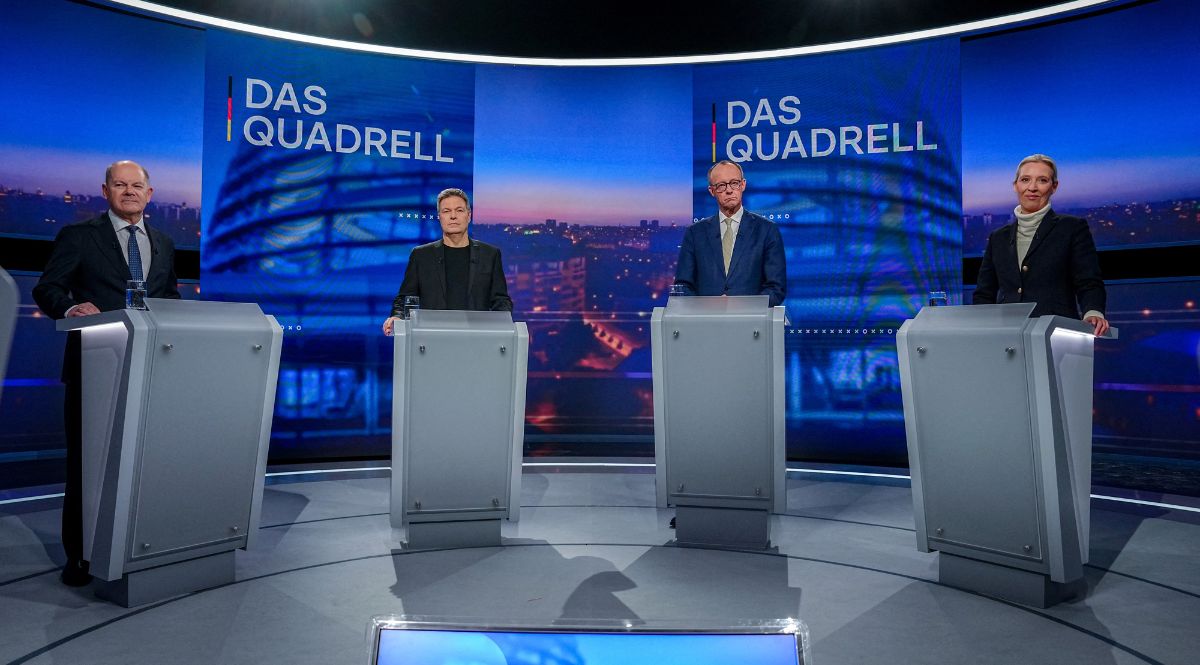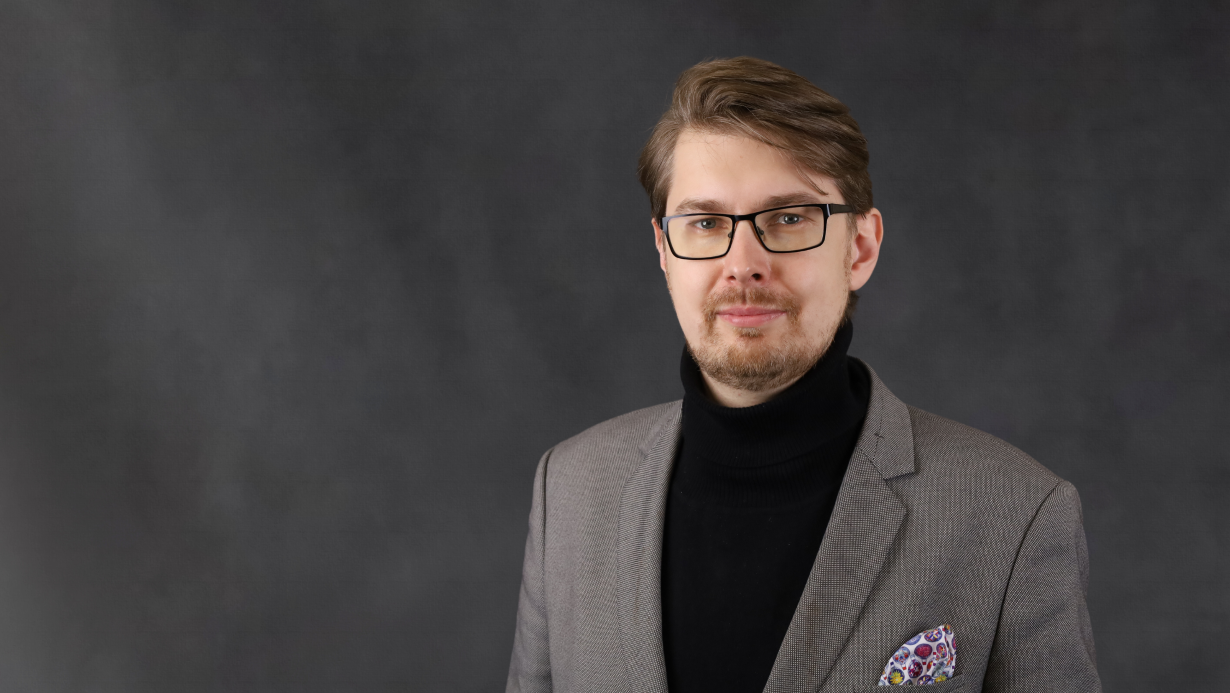International Affairs Playing a Role in the German Election Campaign
Among the important topics in the campaign ahead of the 23 February Bundestag elections are international issues and the direction of Germany’s future foreign policy. They have been even more present in the political debate since the Munich Security Conference and the opening of U.S.-Russia peace negotiations concerning Ukraine. The main issues are the future of transatlantic relations and the possibilities of further support for Ukraine. German migration policy also remains a significant topic. Differences over these issues form the axes of political disputes in Germany.
 Kay Nietfeld / Reuters / Forum
Kay Nietfeld / Reuters / Forum
Pre-election opinion polls by major survey agencies (INSA, Allensbach, Forsa) indicate that the Christian Democratic Union (CDU) is the favourite, backed by about 30% of the voters. The far-right Alternative for Germany (AfD) can count on 20-22%. Next in line are the Social Democratic SPD (about 15%) and the Greens (12-14%). The far-left Die Linke (about 7%) also has a chance of entering the Bundestag, while the populist Sahra Wagenknecht Alliance (BSW) and the liberal FDP are on the edge of the 5% election threshold. After the election, a coalition of the CDU with the SPD or the Greens is plausible.
War in Ukraine and Peace Negotiations
Most political parties besides the AfD, BSW, and Die Linke have been critical of U.S. actions aiming at ending the war. The exclusion of Ukraine and the EU from the U.S. talks with Russia is seen as a weakening of transatlantic ties. Politicians declaring support for Ukraine indicate that the goal should be to ensure the best possible starting position in the peace negotiations. However, they are avoiding declarations on the possible participation of the Bundeswehr in a peacekeeping mission. This suggests risk-aversion, as well as a lack of a clear plan for Germany’s participation in such a mission, especially if it were to operate without U.S. support.
In the campaign, the CDU, the Greens, and the FDP have taken the most consistent pro-Ukrainian stance. They pledge continued support for Ukraine and suggest giving it new weapons, including long-range Taurus missiles capable of striking targets in the Russian Federation. These parties see Russia as a potential long-term threat to Germany and the EU. Olaf Scholz, influenced by pro-Russian and pacifist sentiments of part of the SPD electorate, is trying to present himself as the “peace chancellor”, supporting Ukraine but opposed to Taurus deliveries for fear of “escalation” by Russia. He also suggests that aid to Ukraine must not come at the expense of social programmes. Opposing arms supplies are the AfD, BSW, and Die Linke, arguing for pacifism and the need for “dialogue” with Russia, which from their point of view should be an important partner with Germany, including in the field of energy.
Relations to NATO Allies and EU Partners
Even before the U.S. presidential election, most of the German public expressed fears about Donald Trump’s return to power. His victory was greeted with enthusiasm only by the AfD. The party was publicly supported by Elon Musk (who appeared at a rally and in an interview with Chancellor candidate Alice Weidel) and Vice President J.D. Vance. His speech at the Munich conference was considered by CDU leader Friedrich Merz and others as unacceptable interference in Germany’s election.
Officials from the CDU, SPD, and Greens are concerned about ties with the U.S. weakening and American involvement in Europe. Nonetheless, they stress the need to maintain transatlantic cooperation. An element of the CDU remains the narrative that Merz, in his role as Chancellor, will nevertheless still be able to communicate with Trump. At the same time, however, he points to the need for the EU as a whole to respond jointly to the U.S. president’s threat of tariffs. In the context of EU trade relations, both CDU and SPD leaders advocate ratifying the trade agreement with MERCOSUR as soon as possible.
For most of the parties, the commitment to European integration remains part of the foundation of foreign policy. However, the formulated demands for increasing European defence capabilities through the expansion of industrial capabilities are not accompanied by specifics on providing such projects with adequate financing. Both the CDU and SPD leaderships remain reluctant to the idea of joint debt for defence purposes. The Greens are willing to consider such a solution. Die Linke advocates against armaments by demanding an increased role for the Union in social policy. A reluctant stance towards the EU is presented by the AfD, which demands leaving the eurozone and returning to the German mark. Another demand is to reduce the role of EU institutions in favour of nation-states. Opposing further integration within the EU is also part of the BSW’s agenda.
The issue of relations with China, despite its role as a key German economic partner, is not a significant topic in the election campaign. The attitude towards China will be based on the existing approach defined by the government’s “Strategy Towards China” and EU documents that describe the country as a partner-competitor and systemic rival.
Relations with Poland
Merz holds the most substantive position. He suggested starting work on a new treaty that could give formal relations with Poland a dimension similar to relations with France. Among possible fields of cooperation, he points to energy, security, and the expansion of transportation infrastructure. By declaring rapprochement with Poland, the CDU leader has image-wise disassociated himself from Chancellor Scholz, who is accused of a lack of leadership on the international stage and modest results from last year’s Polish-German intergovernmental consultations.
The CDU leader’s optimistic declarations overlook potential areas of tension in relations with Poland. These include different approaches to financing European defence (opposition to joint debt for these purposes) and to securing the EU’s external border. There is also a risk that, in pursuit of raising his image, the new government headed by the CDU will take unilateral actions, such as turning back migrants at the Polish-German border, which will become another area of conflict.
For Germany’s populist parties, Poland and Central and Eastern Europe more broadly are of no interest. In the AfD’s election programme, Poland appears only in the context of rejecting demands for reparations for German World War II atrocities. The BSW, on the other hand, omits Poland from its programme entirely.
Transnational Dimension of the Migration Discussion
Attacks involving migrants that occurred in the past two months in Magdeburg, Aschaffenburg, and Munich have sparked further discussions about tightening migration policy in Germany. The most radical demands are being made by the AfD, which is calling for turning back migrants at the Germany border and the mass deportation of those without regular status. Demands to keep migrants, including asylum seekers, out of Germany are also on the CDU’s agenda. Its leader Merz also announced the reintroduction of permanent border controls despite the fact that this would be contrary to the Schengen Code. The SPD and the Greens, meanwhile, call for faster processing of asylum applications and advocate the implementation of the EU Pact on Migration and Asylum. The FDP is calling for EU-level harmonisation of social benefits for migrants, while the BSW points to the need for asylum procedures to be carried out in third countries outside the EU. Postulates such as the introduction of permanent border controls are questionable under EU laws and difficult to implement due to staff shortages in German services. However, they indicate the direction in which German migration policy is evolving. Only Die Linke criticises limiting the scale of migration to Germany.
Conclusions
The Munich conference and President Trump’s actions so far have raised the presence of international issues in the campaign in the last week before the elections in Germany. However, the division between supporters of continuation of existing, difficult policies (CDU, SPD, Greens, FDP) and parties calling for a move away from Germany’s involvement in European integration and transatlantic cooperation remain unchanged—AfD and BSW, and somewhat also Die Linke.
In light of the pre-election polls, Germany’s current foreign policy course (cooperation with the U.S. bilaterally and within NATO, and a commitment to the EU) is expected to be maintained. In view of recent U.S. actions, it may prove very difficult for Germany to maintain strong transatlantic ties. Changes related to tighter migration policy and increasing German defence spending are to be expected. The extent of the changes concerning the security sphere will be linked to the results of negotiations between the U.S. and Russia.
From Poland’s point of view, the long-term threat will be if AfD becomes the second political force in Germany and the largest opposition party. In that case, it would influence the public discourse more strongly than before and gradually normalise demands that undermine the previous foundations of German foreign policy. The AfD’s vision of a security architecture in Europe that involves Russia, weakens the EU, and marginalises Central Europe runs counter to Poland’s interests.



(1).jpg)
.png)
.png)